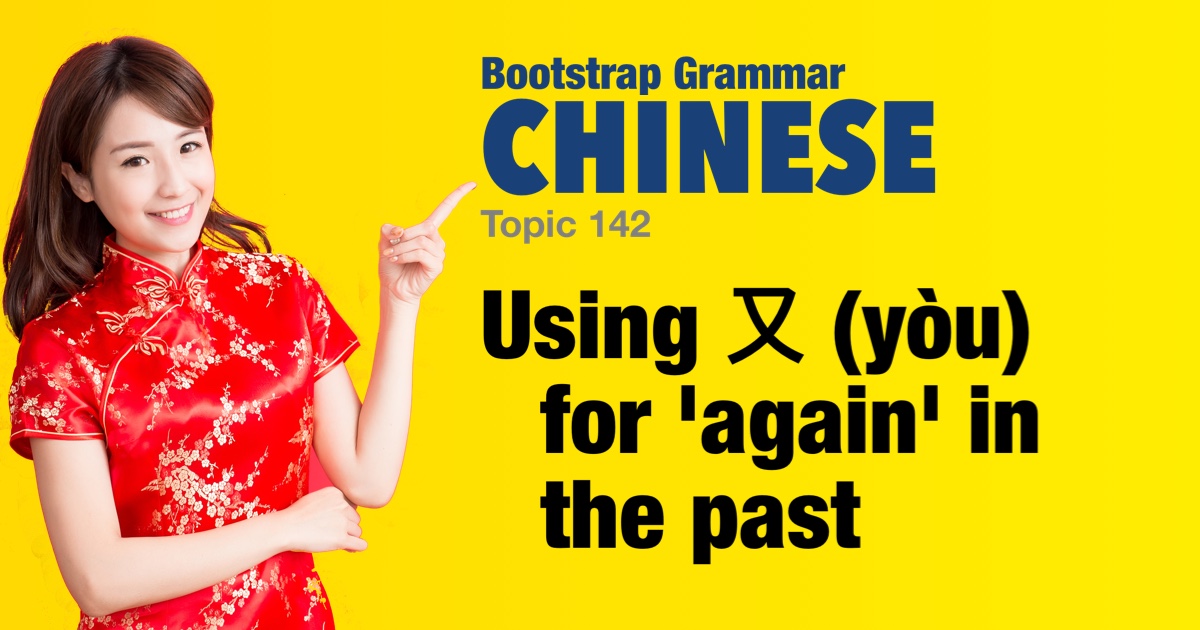Chinese grammar - Using 又 (yòu) for 'again' in the past |
|||
|
|||
In Chinese, the word 又 (yòu) means 'again' and is used for repeated actions in the past. 又 is usually positioned before the verb that was repeated. |
| Examples: | |
|
他又迟到了。
tā yòu chídào le. He was late again. |
|
|
我又忘记了他的名字。
wǒ yòu wàngjì le tā de míngzì. I forgot his name again. |
|
|
她又哭了。
tā yòu kū le. She cried again. |
|
|
我又忘记带钥匙了。
wǒ yòu wàngjì dài yàoshi le. I forgot to bring the keys again. |
|
|
他又迟到了,因为他忘记了。
tā yòu chídào le,#yīnwèi tā wàngjì le. He was late again because he forgot. |
|
|
我们又见面了,这次在一个新的地方。
wǒmen yòu jiànmiàn le,#zhè cì zài yí gè xīn de dìfāng. We met again, this time in a new place. |
|
|
他又生病了,所以他不能来。
tā yòu shēngbìng le,#suóyǐ tā bù néng lái. He got sick again, so he cannot come. |
|
|
他又吃了一碗面条。
tā yòu chī le yì wǎn miàntiáo. He ate another bowl of noodles. |
|
|
我们又爬了长城。
wǒmen yòu pá le chángchéng. We climbed the Great Wall again. |
|
|
我们又去了那家餐厅,这次点了饺子。
wǒmen yòu qù le nà jiā cāntīng,#zhè cì diǎn le jiǎozi. We went to that restaurant again, this time ordering the dumplings.
|
|
|
我又忘记带钥匙了,所以我又得等。
wǒ yòu wàngjì dài yàoshi le,#suóyǐ wǒ yòu děi děng. I forgot to bring the keys again, so I again had to wait. |
|
|
她又换了工作,这次在一家更大的公司。
tā yòu huàn le gōngzuò,#zhè cì zài yì jiā gèng dà de gōngsī. She changed jobs again, this time to a bigger company.
|
|
|
他上课又迟到了,老师很生气。
tā shàngkè yòu chídào le,#lǎoshī hěn shēngqì. He was late for class again, and the teacher was very angry. |
|
|
我又看了那部电影,尽管已经看过两次了。
wǒ yòu kàn le nà bù diànyǐng,#jǐnguǎn yǐjīng kàn guò liǎng cì le. I watched that movie again, even though I had already seen it twice.
|
|
 |
|




